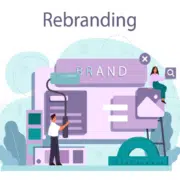Positive Phrasing – Why I Have a Big Problem with “No Problem”
You probably say it without even thinking. Someone says, “Thank you,” and your casual, almost instinctual response is, “No problem!” I used to say it all the time, too. That is, before I knew better. So, what’s the big problem with “No problem?” There’s a better response through positive phrasing.
Positive Phrasing is one of Chartwell Agency’s most popular training sessions for managers and teams – and with good reason. It’s a powerful and easy to use tool in your communications toolbelt.
What is positive phrasing?
Positive phrasing is positioning a statement more positively. It means removing negative words in favor of positive ones, offering options, and emphasizing positive outcomes and consequences. Conversely, negative phrasing often includes qualifiers like can’t, won’t, not, shouldn’t; shares what cannot be done; and focuses on negative outcomes or consequences.
Here are some examples of negative versus positive phrases:
“I’m not available this afternoon,” versus “I’m available tomorrow morning.”
“Don’t forget to turn in your report,” versus “Please remember reports are due tomorrow.”
“I don’t think that will work,” versus “Let’s talk through some alternatives.”
“We can’t complete your application without (INFO)…” versus “If you send us (INFO), we can process your application.”
So, why does positive phrasing work?
- It’s easier to understand. When processing language, the listener first must process the context, then go back and remove the negative qualification. For instance, if I say, “Don’t picture a red sportscar,” you first picture a red sports car, then process the negative qualifier of “don’t.” It takes longer and is less efficient than simply saying, “Picture a green sedan.” When you write or speak in the negative, you place another hurdle in your audience’s way to understanding and acting on your information. In communication, we prefer the simplest, most straightforward path.
- People prefer positive language. Who likes to hear what we can’t do? As human beings, we can bristle at negative language – can’t, won’t, not, no. Negative phrasing often reads as cold, bureaucratic, and blaming. On the other hand, positive language comes across as helpful and constructive. Want to avoid unnecessary conflict in your communications? Remove any subtle (or not so subtle) phrases that carry that negative language or tone.
- It’s assertive and direct. Think of the difference between, “Please be on time to the meeting,” compared to “Don’t be late for the meeting.” By simply sharing what you want (people to be on time) versus what you don’t want, you’re being more direct about your expectations while also being more positive in approach. Leaders who use positive phrasing are seen are more confident, trustworthy, and optimistic. Wouldn’t we all prefer to be viewed that way?
- Be thoughtful about the words you put out into the universe. I know this may sound a little hippy-dippy, but language is powerful. The words you use have weight – sometimes more or different than we intend. Think about the words you use and whether you want those associated with you. Revisiting my beef with the phrase, “No problem,” do you want the word “problem” to come from you, especially when a simple, “You’re welcome,” or “My pleasure,” would do just fine? Probably not.
Here’s an activity to kick off your mission to phrase more positively. The next time you’re preparing for a meeting or sending a communication, consider the language you plan to use and see if any of it carries a negative tone. Take the time to rephrase them by removing negative qualifiers, offering options, and stressing positive consequences. Over time, your positive approach will become habit and your communications will benefit. And if someone says “thank you,” you can simply respond, “I was happy to help.”
Chartwell Agency teaches positive phrasing and other valuable communication skills in many of our training sessions. Check out this video to learn more about how these sessions can develop your (or your team’s) skills!








